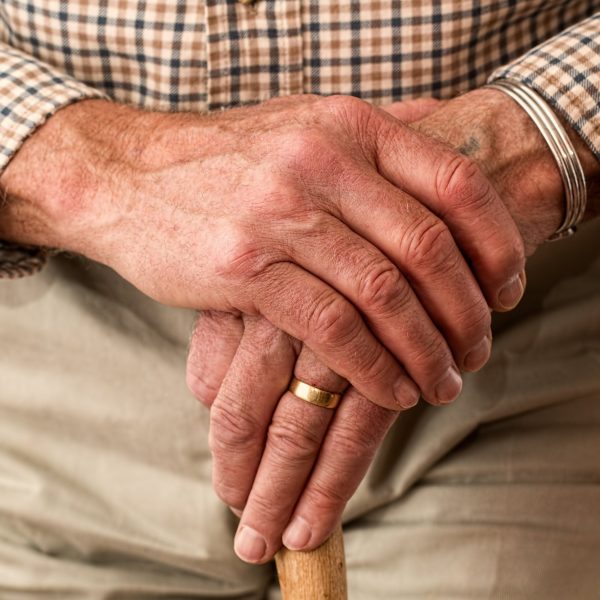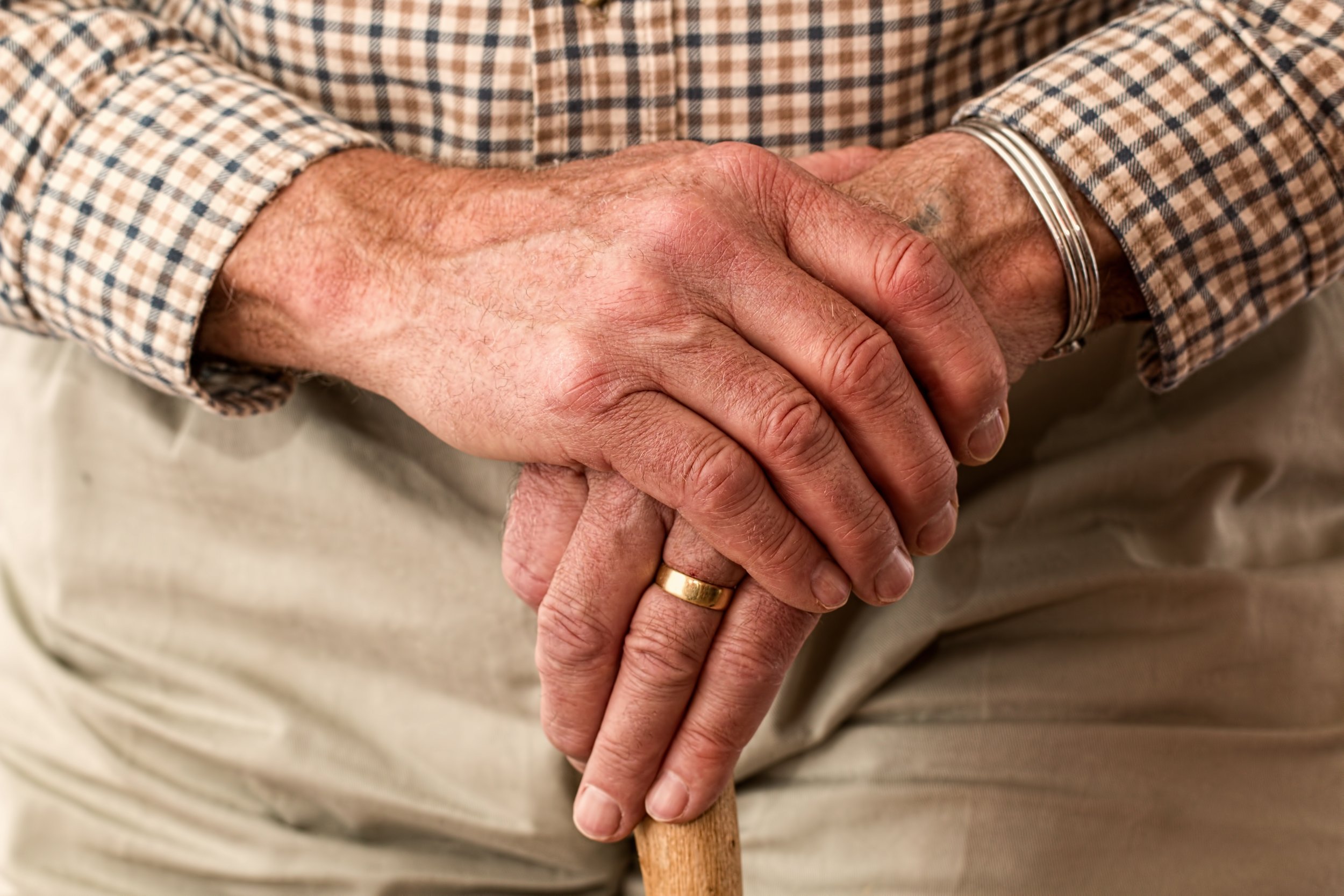Parkinson’s Disease

Parkinson’s disease is a progressive neurodegenerative disease that affects the way the body moves. Normally, brain cells produce a chemical called dopamine that sends signals to the brain and helps to control movement.
Parkinson’s develops when the dopamine-producing brain cells die and the brain doesn’t receive enough dopamine to help regulate movement.
What causes Parkinson’s disease?
Most people notice a slight shaking of the hands or fingers initially, though this can also affect the arms and legs. Other primary symptoms include stiff muscles, slow movement (bradykinesia), and problems with balance or walking. Additional signs include writing changes, speech changes, loss of automatic movements (i.e., blinking, smiling, or swinging arms while walking), and rigid muscles.
THE SYMPTOMS
Tremors
Usually shaking begins in the hand, fingers, or limb, and it occurs only on one side of the body. Tremors usually occur when the patient is at rest, stopping while the patient performs an activity. One characteristic movement of this disease is known as pill-rolling, which is when the thumb and index finger makes circular movements.
Slower movement
Many people with Parkinson’s have what is known as a shuffling gait, and they move very slowly from place to place. Because of the slower movement, a person may experience more difficulty performing daily tasks or getting out of a chair. Normal activities may become more time-consuming.
Speech changes
Speaking issues may occur from the lack of dopamine that is released in the brain. Patients may notice that they slur their words, become monotone, speak slower or faster, and hesitate before speaking. Some people have no voice inflection with Parkinson’s disease.
Impaired unconscious movements
In Parkinson’s disease, patients may have difficulty performing movements that are usually unconscious, such as swinging the arms, smiling, blinking, or moving their hands when talking. These changes are characteristic of reduced dopamine levels.
Poor posture
Parkinson’s disease can cause a person to appear bent over when walking, and balance may become an issue with the onset of this disease.
Stiff muscles
Muscle rigidity is a common factor in Parkinson’s, and it can occur in any part of the body. This stiffness can limit a person’s range of motion and lead to pain.
RISK FACTORS FOR MULTIPLE SCLEROSIS
There are certain risk factors that can raise the chances of developing MS. Multiple sclerosis tends to emerge among people aged 20 to 40. In addition, women are twice as likely as men to develop the condition.
If there is a family history of the disease, patients have a one to three percent chance of developing it, and Caucasian people of European descent are at a higher risk for the disease. Infections such as Epstein Barr may also raise the risk of a multiple sclerosis diagnosis.
Our treatment approach The Back to Wellness Program for Parkinson’s Disease
Dr. Anju Mathur’s holistic functional approach to multiple sclerosis treatment is specifically designed to find and treat the symptoms of the disease using her advanced “Back to Wellness Program.” As a multiple sclerosis doctor, she specializes in assisting patients with dietary changes and therapies that are essential to any degree of recovery from MS. She also makes recommendations regarding the correct nutritional supplements for the condition.
With her “Back to Wellness Program,” Dr. Mathur uses the appropriate IV therapies to help patients relieve their symptoms.
She also promotes overall lifestyle changes, performs specialized food allergy testing, and recommends environmental toxicity testing for heavy metals and mold. For MS patients, she often performs phospholipid exchange therapy, which may detoxify the body at a cellular level and cleanse the cells of systemic toxins to improve overall organ function. From there, chelation therapy can help to detoxify the body, which may improve immune system function and organ health.
Dr. Anju Mathur’s “Back to Wellness Program” incorporates these therapies and others if necessary to help patients regain optimal levels of health.
 Meet Dr. Anju Mathur
Meet Dr. Anju Mathur
Multiple sclerosis specialist, Dr. Anju Mathur, works to reduce the effects of multiple sclerosis in her patients with her “Back to Wellness Program.” Patients will receive a customized treatment plan that allows them to pursue different levels of healing in multiple phases.
To begin, Dr. Mathur will complete a comprehensive evaluation for patients suffering from the symptoms of multiple sclerosis, and she will evaluate the body’s different systems in order to derive the most effective treatment plan. Dr. Mathur is skilled in identifying which systems are dysregulated and determining how to help the body regain balance. She specializes in using her “Back to Wellness Program” to treat the full range of autoimmune disorders and chronic diseases – including multiple sclerosis.
Dr. Mathur’s “Back to Wellness Program” stands apart from other treatments that patients may have tried because it infuses her expertise with holistic and functional medical healing modalities in the treatment of multiple sclerosis. To learn more about how to slow the progression of MS or reduce your symptoms, please call multiple sclerosis specialist, Dr. Anju Mathur, at (818) 961-2055 today.
Are your symptoms bringing you down? Do you have questions about one of our treatments? Are you ready to begin feeling better, longer? Please call us at (818) 961-2055 for a complimentary, 15-minute phone consultation with a health counselor, or if it’s after hours, please fill out the form below, and we’ll get back to you within one business day.




